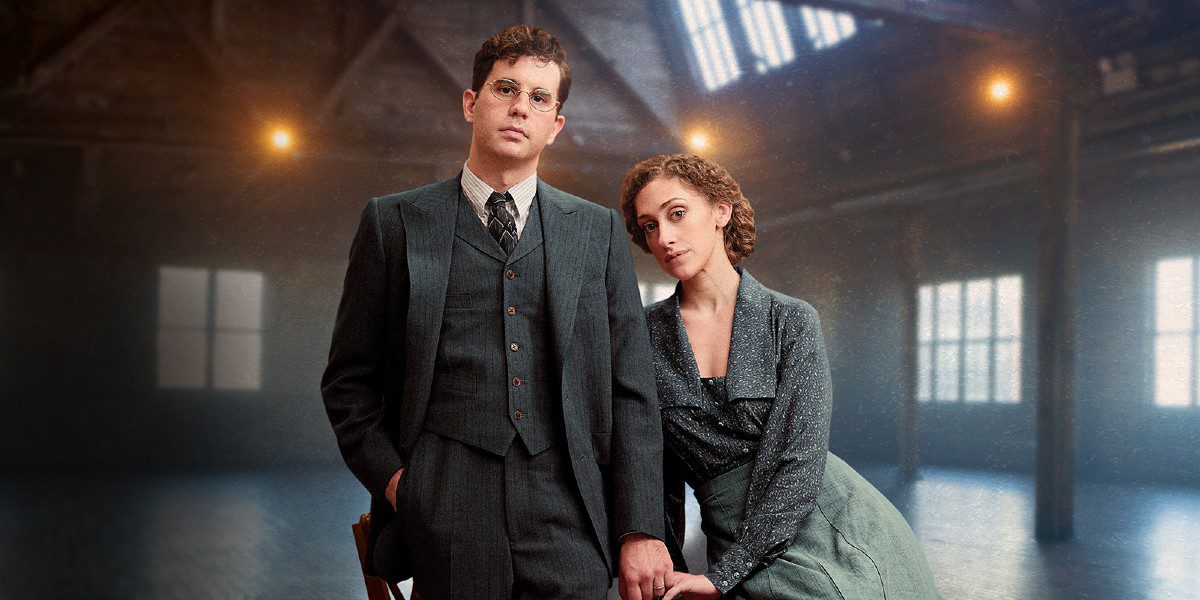Transitioning from the relative peace of the Clinton era to today’s turbulent times, the revival of the acclaimed yet short-lived musical “Parade” has found its moment in a stunning Broadway production.
A decade after its initial Broadway debut in 1998, directed by Harold Prince, which garnered awards but had a brief run, Rob Ashford‘s 2007 reimagining at London’s Donmar Warehouse breathed new life into this challenging show. This version gave the musical, with its dark themes, a more robust structure and renewed vitality.
Building on this foundation, last fall’s celebrated gala presentation at New York City Center offered a stark and searing production. It revealed the work as an essential American epic, resonating profoundly with our current times. Now on Broadway, it fills a vast national canvas, stretching from its Civil War prologue to its modern-day coda.

The production features a 26-member cast of extraordinary voices and a dynamic orchestra performing Jason Robert Brown’s ambitious and engaging music. Written in his twenties, Brown’s score incorporates a broad spectrum of American musical styles: Southern laments, love ballads, charm songs, and hopeful anthems, all interwoven with gospel, blues, jazz, and Broadway influences.
But will contemporary audiences embrace a musical that tackles disturbing themes like racism, antisemitism, and injustice, culminating in a lynching?
Context and artistry are crucial, and here, Brown, book writer Alfred Uhry (“Driving Miss Daisy,” “The Last Night at Ballyhoo”), and director Michael Arden (“Spring Awakening,” “Once on This Island”) transform this tragic narrative into a significant and artistically rich production.
Despite its heavy themes, the musical also includes moments of charm, wit, and even a razzle-dazzle number, providing respite from the weight of grief, outrage, and historical ghosts.
Ben Platt (“Dear Evan Hansen”) delivers a stunning performance as Leo Frank, a Brooklyn Jew falsely accused, tried, and convicted of murdering 13-year-old Mary Phagan (Erin Rose Doyle), who worked at the Atlanta pencil factory where Frank is superintendent. Platt brings depth to a character that’s not easily sympathetic, portraying Frank’s formality, imperiousness, and occasional insensitivity while revealing a touch of wry humor. His fantasy number “Come Up to My Office” and his emotional transformation in the second act make Frank a complex, multifaceted figure.
:max_bytes(150000):strip_icc():focal(749x299:751x301)/Ben-Platt-PARADE-02-010923-7d77ca87433241da95518159f2e8c1ad.jpg)
Micaela Diamond (“The Cher Show”) shines as Frank’s neglected wife, Lucille, delivering a compelling arc that grows in power. Her performance brings heart to a narrative that is often chilling, with second act duets like “This Is Not Over Yet” and “All the Wasted Time” providing emotional grounding.
The ensemble cast also shines, with each member having their moment. Jake Pedersen is delightful as Mary’s suitor, Jay Armstrong Johnson brings pizazz, and Courtnee Carter and Douglas Lyons offer a stinging perspective. Sean Allan Krill, Howard McGillin, and Alex Joseph Grayson add to the emotional depth of the production.
The presentational style of the show, a hallmark of City Center’s Encores! series, enhances focus and keeps the musical numbers front and center. Heather Gilbert’s lighting, Susan Hilferty’s period costumes, and Jon Weston’s sound design contribute significantly to the production’s impact. The tri-level stage by Dane Laffrey stands in effectively for various locales, from factory offices to gallows, while co-choreographers Lauren Yalango-Grant and Christopher Cree Grant ensure historical events move gracefully.
Sven Ortel’s projections of vintage photographs remind audiences of the real history behind the story. This revival of “Parade” teaches lessons from a wicked past that continues to haunt us.






